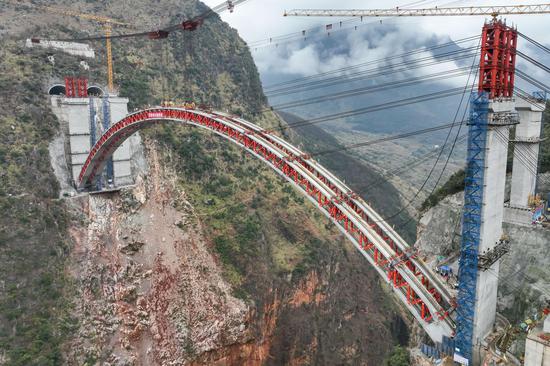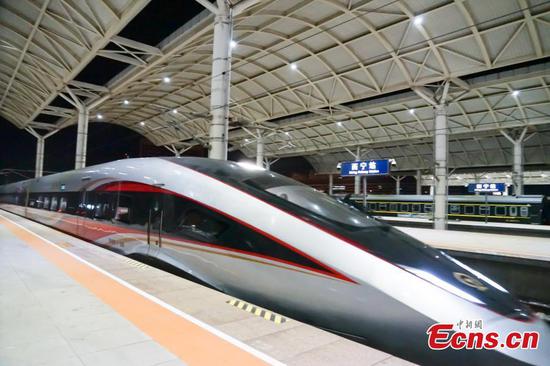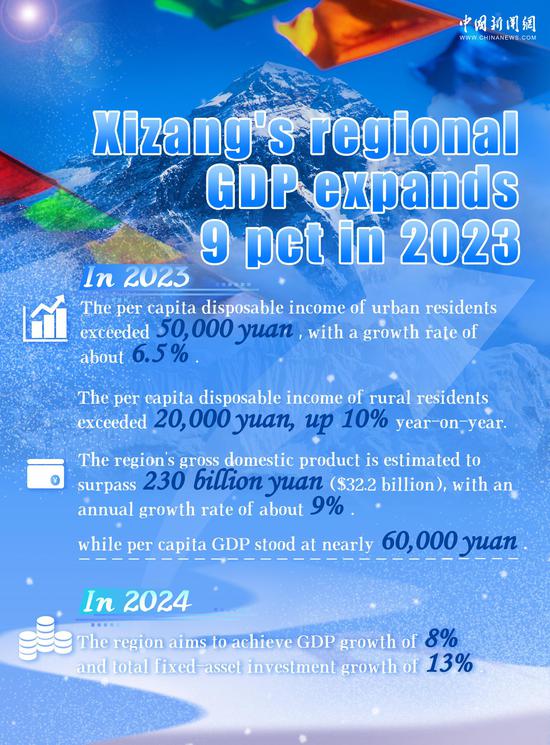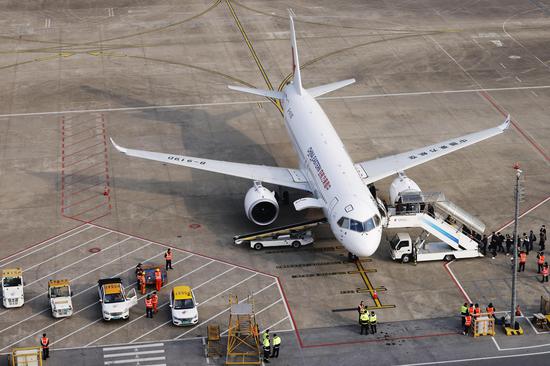
Potential homebuyers check models of housing projects at a real estate agency in Shanghai. (WANG RONGJIANG/FOR CHINA DAILY)
China's property market saw some positive changes last year with declines in property investment and sales volume narrowing, suggesting the industry's long-term development remains on a solid and secure footing, given the continuing urbanization and the huge growth potential that the industry's new development pattern promises, officials and industry experts said on Wednesday.
"After more than two decades of development, the nation's property market is undergoing an adjustment and transition. Against such a backdrop, local governments and related divisions keep optimizing housing policies in a timely manner to be in tune with changing market dynamics," said Kang Yi, head of the National Bureau of Statistics, on Wednesday.
Kang said property investment in 2023 slowed at 9.6 percent year-on-year, narrowing by 0.4 percentage point from a year earlier.
The recovery is more apparent in property sales. Throughout 2023, commercial property sales fell 8.5 percent year-on-year in terms of floor area. And in terms of value, they fell by 6.5 percent year-on-year. The drops themselves narrowed by 15.8 percentage points and 20.2 percentage points, respectively, from previous year.
Both new and pre-owned residential properties saw a mild pickup in transaction volume in the 70 large- and medium-sized Chinese cities tracked by the NBS, said Kang.
Meanwhile, thanks to the all-round efforts made to ensure timely delivery of property projects, completed real estate space surged by 17 percent year-on-year in 2023.
Yan Yuejin, director of the Shanghai-based E-house China Research and Development Institution, said he expects the market to warm up and confidence to recover in 2024 as adjustments take effect.
"Looking ahead, the long-term healthy development of China's property market is on a solid foundation, as there is still much room for the nation's urbanization to improve both in quantity and quality," said Kang.
"China's urbanization rate rose to 66.16 percent in 2023, still lagging developed economies whose rate is 80 percent. The urbanization in the past five years brought more than 10 million rural people to urban areas each year, creating great housing demand."
Meanwhile, some people's quest for better homes will likely drive housing demand, said Kang.
On Wednesday, the NBS published data on major Chinese cities' home prices, showing 70 cities' differentiated performance in December, said Shen Yun, senior statistician with the NBS' urban division.
For example, China's four benchmark cities — Beijing, Shanghai, Shenzhen and Guangzhou in Guangdong province — registered a decline of 0.4 percent in new home prices in December from a month earlier, according to the NBS. Specifically, Shanghai took the lead by reporting 0.2 percent growth, followed by Beijing, whose index stayed flat, while Shenzhen and Guangzhou reported declines of 0.9 percent and 1 percent, respectively.
"Entering 2024, local governments have made various efforts to optimize homebuying policies, which will work together with the central government's measures to boost real estate developers' confidence," said Guan Rongxue, a senior analyst with the Zhuge Real Estate Data Research Center.


















































 京公网安备 11010202009201号
京公网安备 11010202009201号
